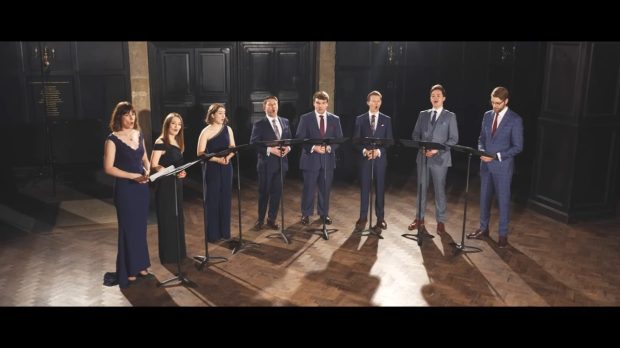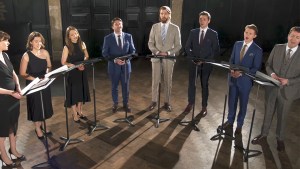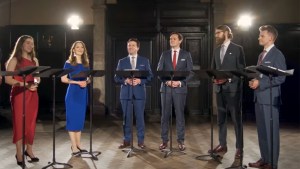It’s almost hard to believe that after we’ve featured VOCES8 so frequently they can still impress us at every turn. This was our first thought when we heard their outstanding new rendition of William Byrd’s “Praise Our Lord, All Ye Gentiles,” composed in 1611.
It’s hard to overstate how difficult a piece like this one can be to sing in a group. Each voice part is singing its own melodic line. The music almost sounds like a cacophony of vocalists each singing a different song, but each of these voices also come together to form a different melody, which is even greater than the sum of its parts.
In this regard, polyphony – the style of music which Byrd wrote most – can be compared to the Catholic community, with each of the faithful bringing something unique to the table. This is also true for the singers of VOCES8, who each bring their own expertise to thrive in the world’s premier sacred choir.
The lyrics of this hymn were drawn from Psalm 117. We should note that the word “Gentiles” is used in place of “peoples.” This is because William Byrd was working from the King James Bible, which was coincidentally first published in 1611, the same year Byrd wrote “Praise Our Lord”:
Praise the LORD, all you nations!
Extol him, all you peoples!
His mercy for us is strong;
the faithfulness of the LORD is forever.
Hallelujah!
VOCES8 noted in their explanation of the video that this performance was recorded in honor of the 400th anniversary of William Byrd’s death in 1623. Byrd, widely considered the most influential English composer of the Renaissance, was a great contributor to sacred music as both an Anglican and later a Catholic.
Byrd had already converted to Catholicism by the time “Praise Our Lord” was published, but he still had to skirt a fine line in his musical writings. As a Catholic in Protestant England, his music could obviously be Christian, but it could not be overtly Catholic. This is why the Catholic Byrd continued to draw his texts from the King James Bible in his later years. Had he used Catholic texts, they most likely would have been in Latin, as the Catholic Church of the Renaissance used the Sixto-Clementine Vulgate, promulgated by Pope Clement VIII in 1592.



